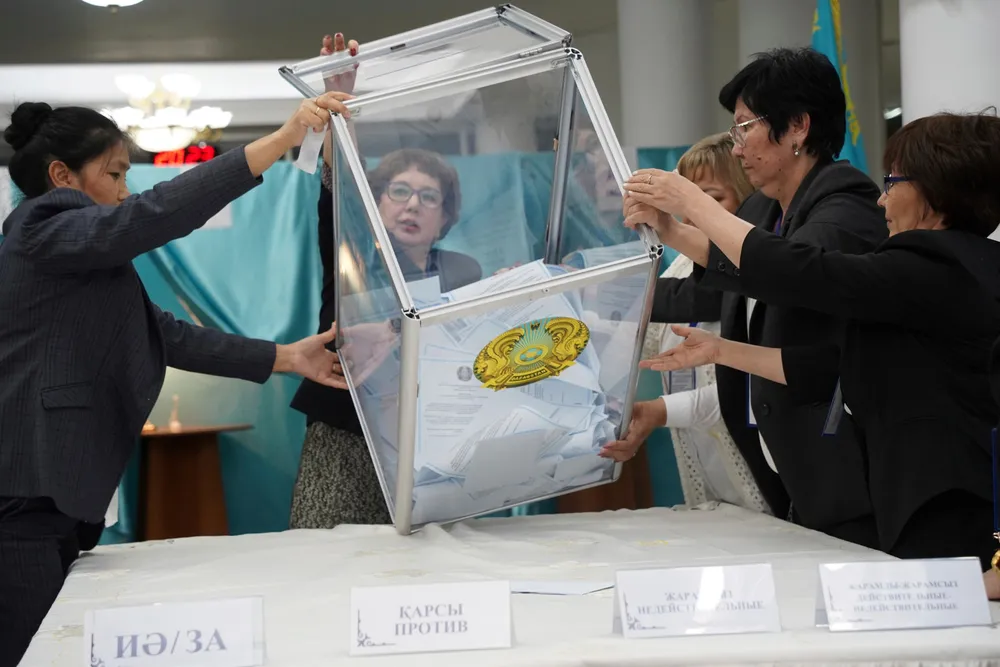Kazakh referendum aims to quell discontent as oil sector starts to shed workers
Proposals purport to tackle grievances over corruption and living conditions in a country which remains heavily dependent on Russian oil logistics

Proposals purport to tackle grievances over corruption and living conditions in a country which remains heavily dependent on Russian oil logistics
